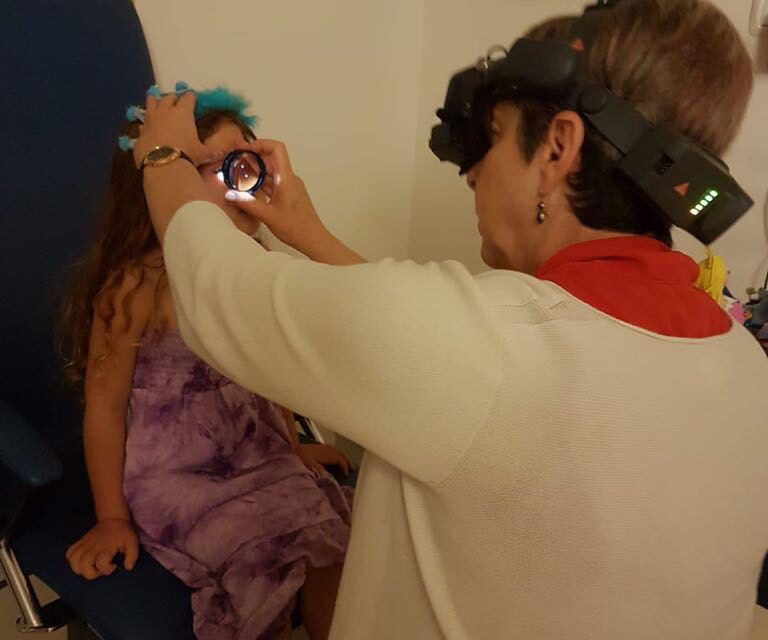
A six-year-old girl we can call Talya was about to begin first grade. She saw a boy, age eight, beating a kitten with a big stick.
“Stop! Stop! Why would you hit something so small and helpless?” she asked.
“I’ll hit you instead,” the bully answered, beating her mercilessly with his stick.
Black and blue, with blood in her eye, Talya was brought to the Hadassah Medical Center’s pediatric ophthalmology specialists.
“Seventy-five percent of eye trauma happens to children,” relates Hadassah’s Director of Pediatric Ophthalmology Dr. Irene Anteby. “The little girl was lucky,” she says. “The bleeding in her eye will be absorbed and she won’t lose her vision.”
Hadassah’s Pediatric Ophthalmology Center is Israel’s top center for pediatric eye care. “Part of our work is educating physicians,” explains Dr. Anteby. “We always have two residents, one from Israel and one from abroad, who are training with us.”
Hadassah also plays a central role in treating Retinopathy of Prematurity (ROP), which causes poor vision in premature babies. Most of the children with this problem have spent time in a neonatal intensive care unit, often because their lungs are not fully developed. These babies receive oxygen therapy, which can hurt their eyes. ROP can be mild and may resolve spontaneously, but if it is more severe and does need to be treated and is not treated on time, ROP can lead to blindness.
Many of these small patients with ROP come from the Palestinian Authority and nearby countries where there is less awareness of the problem. “We always hope that they arrive soon enough so that we can preserve whatever sight they have left,” Dr. Anteby says.
Hadassah staff members also screen children in Jerusalem’s well-baby “Tipat Halav” (Drop of Milk) clinics to identify early vision problems, such as lazy eye or cataracts. Last year, Hadassah physicians removed 80 pediatric cataracts, which can result either from genetic defects, metabolic conditions or trauma to the eye.
Thanks to Hadassah specialists, Talya is now resting at home and will start first grade this September with her vision intact.
Meet Dr. Irene Anteby
Born in Sweden, Dr. Irene Anteby moved to Israel when she was 20 years old. She studied medicine at the Hebrew University-Hadassah School of Medicine and specialized in pediatric ophthalmology, as well as the subspecialty of strabismus, also known as crossed eyes.
Along with being Director of Pediatric Ophthalmology at Hadassah, Dr. Anteby is chair of the Israeli Association for Pediatric Ophthalmology. On a medical mission to the Marshall Islands in the Pacific, Dr. Anteby performed cataract surgery on tens of patients. On the last day of the mission, the driver who had been chauffeuring the ophthalmologists to see patients asked them to check his vision. “We were shocked to find out that our driver was half-blind!” relates Dr. Anteby. “We quickly operated on him to return his vision, but from that point on, we visited all our patients on foot.”
